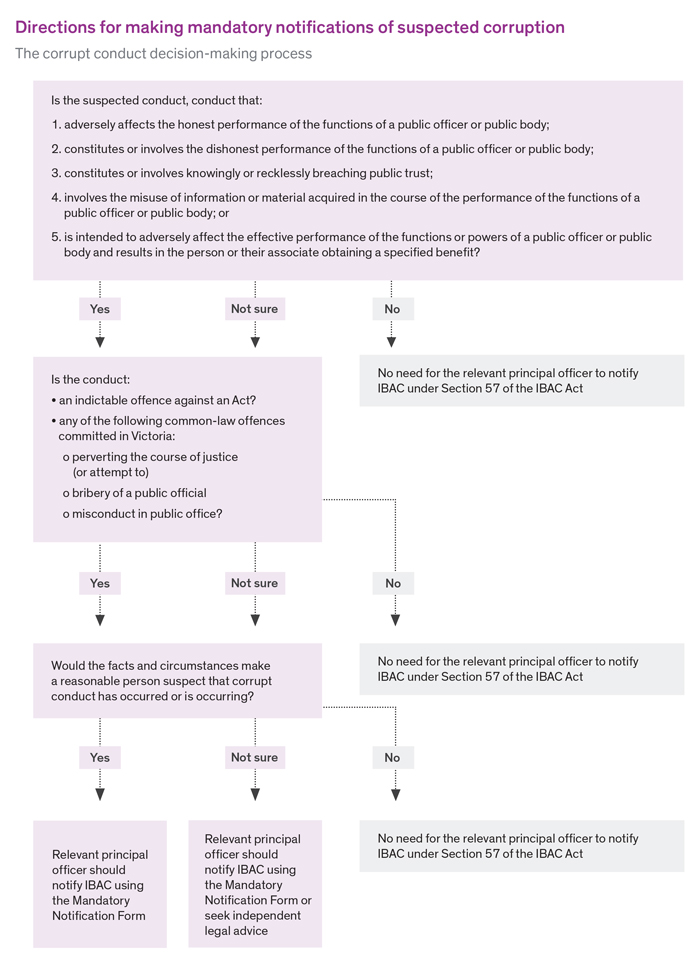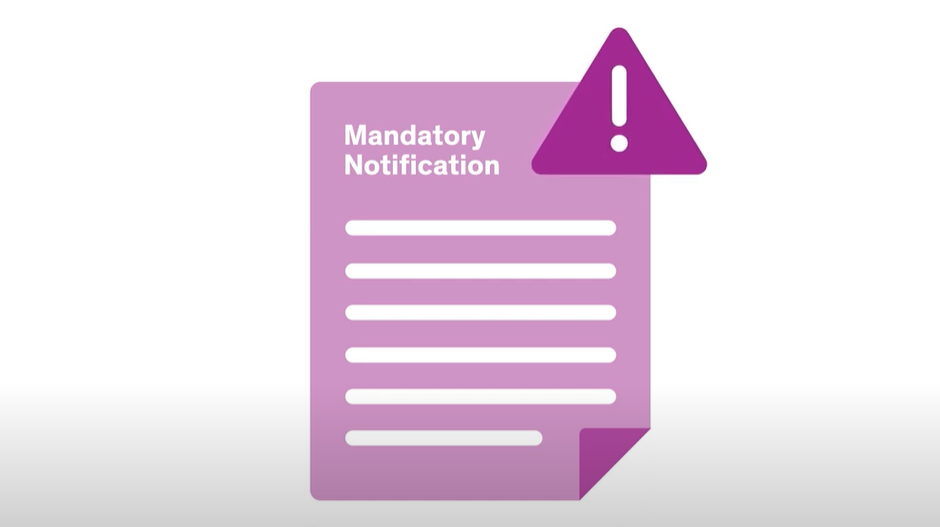
Our online complaint and provide information forms are currently unavailable. In the meantime, you can download a complaint form and submit it to us by email or post.
Find translated resources and information about how to report corruption and misconduct in the Victorian public sector, or call us and as for translation services on 1300 735 135
Whether you’re a public sector employee, government supplier or member of the public, you can learn about and take action to prevent corruption.
Anyone can make a complaint to us or provide information about public sector corruption and police misconduct in Victoria.
We can investigate complaints of corruption and police misconduct across the Victorian public sector, including Victoria Police. By law, we must prioritise serious or systemic corruption for investigation.
Find and download IBAC publications and resources including public reports, information sheets and more.
As the head of a department, agency or council (the ‘relevant principal officer’), you must notify IBAC if you have reasonable grounds to suspect corruption.
Mandatory notifications of public sector corruption are an essential part of the Victorian public sector's collective commitment to bolster integrity and stop corruption.
Mandatory notifications were introduced in December 2016 as per section 57 of the Independent Broad-based Anti-corruption Commission Act 2011 (Vic) (IBAC Act).
Mandatory notifications of public sector corruption were introduced in December 2016. This obligation is set out in section 57 of the
As the head of your department, agency or council (the ‘relevant principal officer’), you are obligated to notify IBAC when you have reasonable grounds to suspect corruption is occurring or has occurred in your workplace.
Relevant principal officers aren’t required to search out corrupt conduct. However, they must report suspicion of conduct that:
See directions for making a mandatory notification, including what's corrupt conduct and what's a reasonable suspicion.

IBAC recognises that sometimes it can be difficult to discern what constitutes corrupt conduct or at what point reasonable suspicion is formed. Relevant principal officers should exercise their judgement, and may seek independent legal advice before notifying IBAC.
Be careful to maintain confidentiality, do not approach anyone you suspect of wrongdoing, and do not commence an internal investigation before notifying IBAC.
If in doubt, submit a notification to IBAC for assessment.
Misconduct that does not meet the mandatory notification threshold described above does not need to be reported to IBAC (for example, low level misconduct or performance related issues which should be handled internally as disciplinary or staff development matters).
Download and complete the mandatory notification form below. Use additional Part B and Part C forms if required.
Submit the form(s) to info@ibac.vic.gov.au
For urgent matters, call IBAC on 1300 735 135 (10 am – 4 pm, Monday – Friday, excluding public holidays).
Post
Attention: Manager Assessments & Review
IBAC Commissioner
GPO Box 24234
Melbourne VIC 3001
IBAC will acknowledge all notifications in writing. IBAC will then assess the notification and either:
The IBAC Act requires us to prioritise investigations of a serious or systemic nature.
Relevant principal officers will be notified in writing of the outcome of IBAC's assessment and advised of any further steps that need to be taken.
Relevant principal officers should contact IBAC if urgent action is required before or during the assessment.
